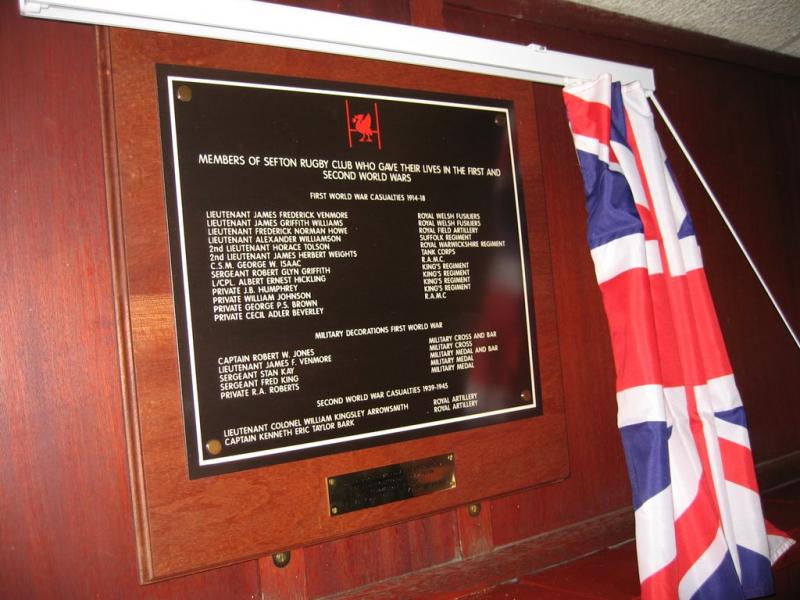Horace Tolson
(1884-1918)
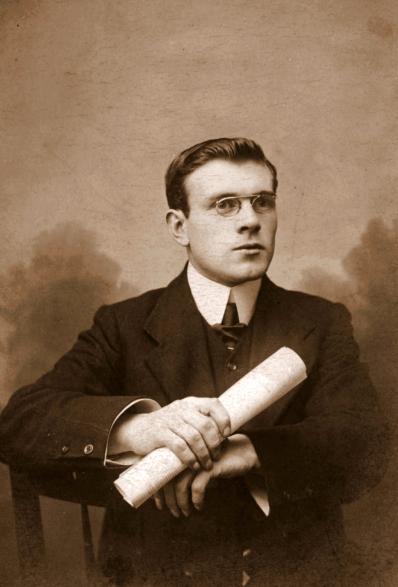
An Alien at War
Written and researched by David Bohl, with the kind help and documents supplied by his nephew's granddaughter Christine Davies, and World War 1 historians world wide
Horace Tolson
(1884-1918)

1907:
After leaving Westminster College he was appointed to the Morrison Council School, Sefton Park, Liverpool, and became a Sunday School Teacher and member of the Lodge Lane Wesleyan Church.
He became a founder member of The Aliens Rugby Union Club based at Clubmoor.
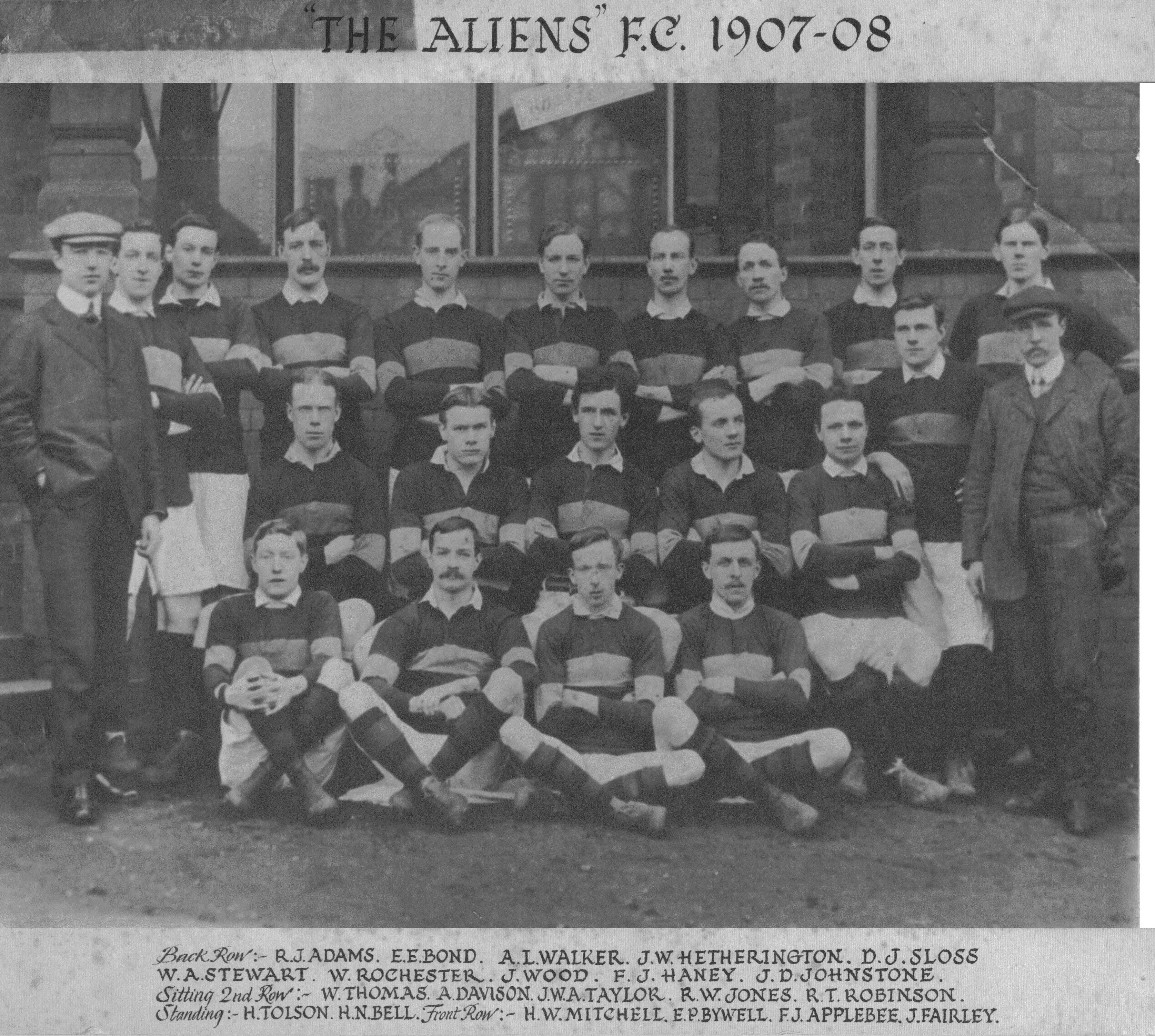
(Colours were black with an emerald hoop)
1908-9:
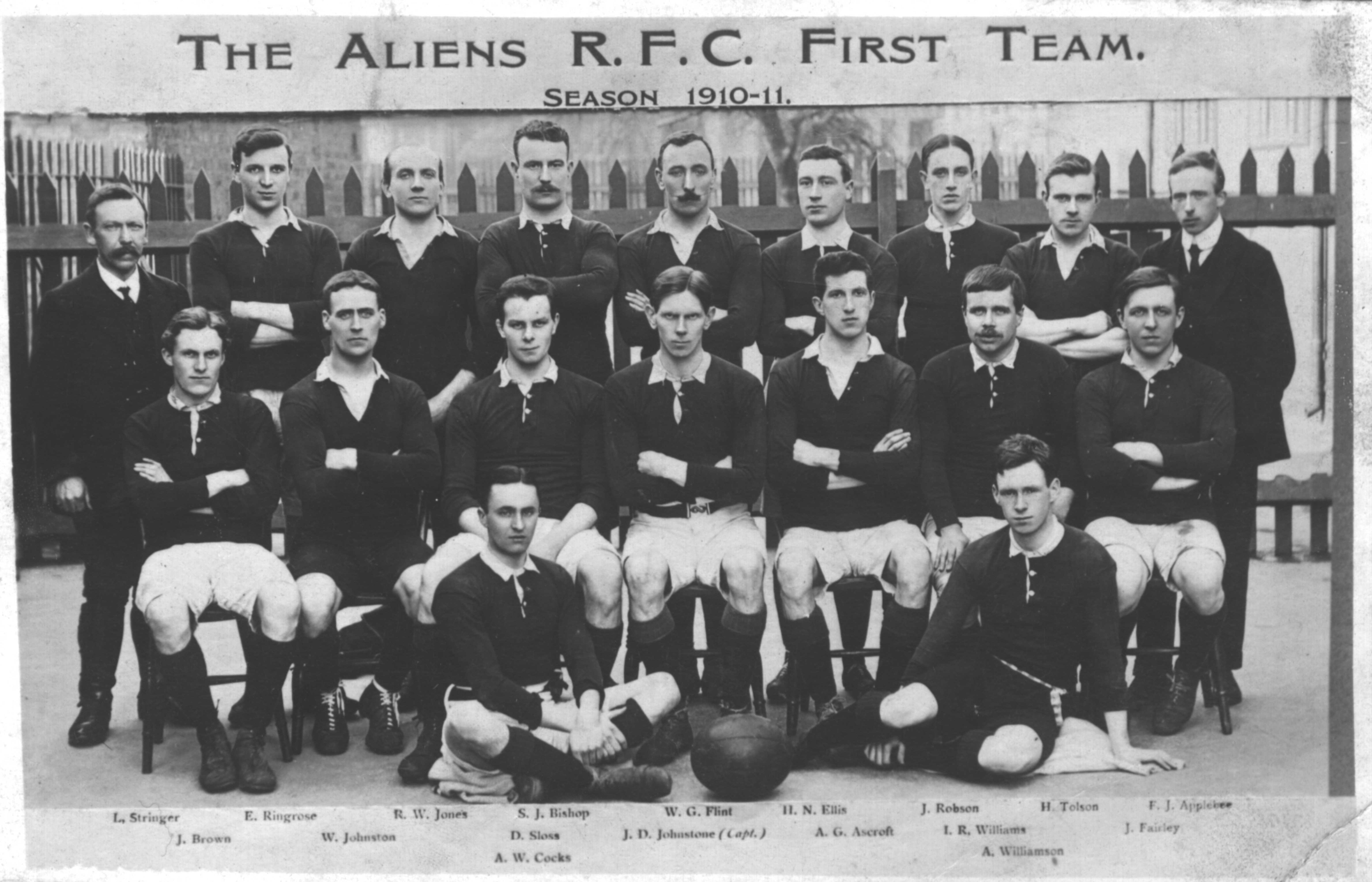
THE ALIENS v WATERLOO 'A'
The Aliens are weekly adding to their laurels, and at Clubmoor, on Saturday, had the satisfaction of administering a 21-3 licking of an "A" team from Waterloo. Throughout the game the Aliens attacked consistently, whereas Waterloo trusted to unexpected rushes on the home line to gain them their points. At three-quarter and half they were inferior to the schoolmasters, whose doings were watched with considerable interest by Mr J.G.Legge, director of education. Johnstone ran in a brace of tries. The finest try of the afternoon was by Tolson, and others to cross were Robinson and Bonney. Fairley again carried off the honours in the goal kicking line, improving three of the five tries scored. Waterloo had plenty of chances, but their combination was poor, and their only score was an unconverted try, the wind being responsible for the failure of the kick.
Liverpool Daily Post and Mercury 15th March 1909
1910-11:

Aliens Committee Meeting held at Bee Hotel Aug. 28th 1913
Present Messrs Knipe(chairman), Applebee, Marshall, Ringrose, Helme, Lindsay, S.J.Kay, Outhwaite, King, Facey, W.H.Kay, O'Donnell, H.N.Ellis, Bishop, R.T.Robinson, D.Sloss, H.Bayliss, Venmore, Milbourn, E.Roberts, T.Madoc-Jones, W.G.Thomas, Flenley, Tolson, O.E.Bayliss, Croxford, Kearns, J.Williams, J.G.Williams.
The minutes of the previous General Meeting were read and confirmed.
With regard to the third team Mr Croxford proposed that, and Mr R.T.Robinson seconded that:
"Those actively connected with the schoolboy movement hold a meeting next week and if a sufficient number of boys be obtainable, they be empowered to run a third team, at a rental of £5 for ground."
It was proposed and carried that These boys, up to the age of 17 be admitted to the club as junior members, without the right to vote, and at a subscription to be fixed by the committee.
No junior member to be played in the 2nd (or 1st team unless in case of shortage of players during coming season).
December 1917:
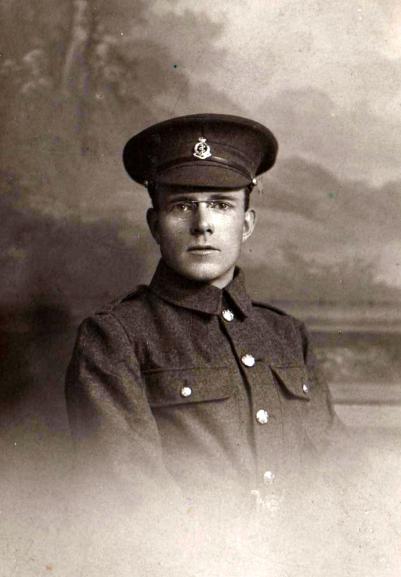
In early December it was reported that Private Horace Tolson, the son
of Joah Tolson of Holmfirth, had been promoted to Second Lieutenant. He
had been in action at Gallipoli and on the Western Front.
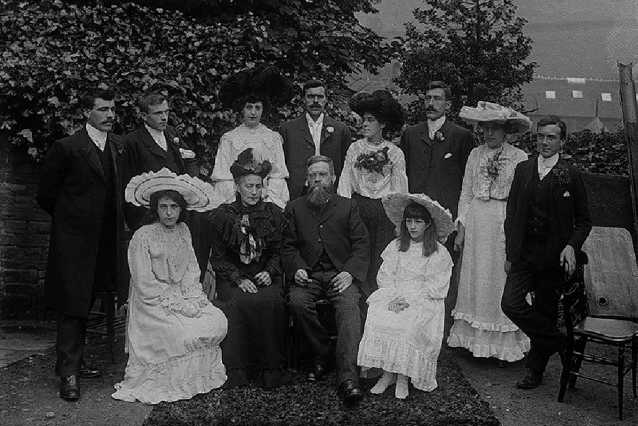
The Tolson Family
Back Row - Richard, Horace, Eleanor, Walter, Hannah Elizabeth, Ernest, Ethel, Charles
Front Row - Edith, Sarah, Joah, Marion
March 1918:
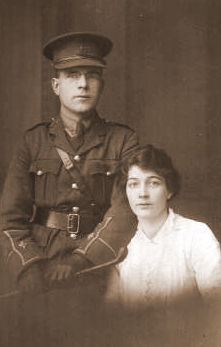
With his sister Marion
(referred to as Mag in letters )
Second Lieutenant Horace Tolson, 8th Battalion, Royal Warwickshire
Regiment. He was born on June 7th 1884, he was one of 10 children. The
thirty-three year old son of Joah and Sarah Tolson, of Ryefield,
Holmfirth, he had attended Holmfirth Wesleyan Day School and trained as
a teacher at Westminster College before joining Morrison Council
School, Sefton Park, at Liverpool, and he was there when the war broke
out.
He enlisted as a Private in September 1914, originally in the 87th
Field Ambulance, Royal Army Medical Corps, after several months in
hospital following a knee injury, he sailed for Lemnos on October 9th
1915. He served at Gallipoli, Egypt and France with the 29th Division,
until July 1917, when he returned to England for officer training at
Oxford. He was commissioned Second Lieutenant in November 1917 and
sailed for France in January 1918, this time with the Royal
Warwickshire Regiment.
A report said that three officers were chosen for a special duty and
only one of them came back. The survivor said that Lieutenant Tolson
had been wounded when in charge of a machine-gun at Demuin, but he had
continued fighting until he was killed on Friday 29th March 1918. There
is no known grave.
Commonwealth War Graves Commission Link
© 2017 The Commonwealth War Graves Commission
https://www.cwgc.org/find-war-dead/casualty/1589673/tolson,-horace/
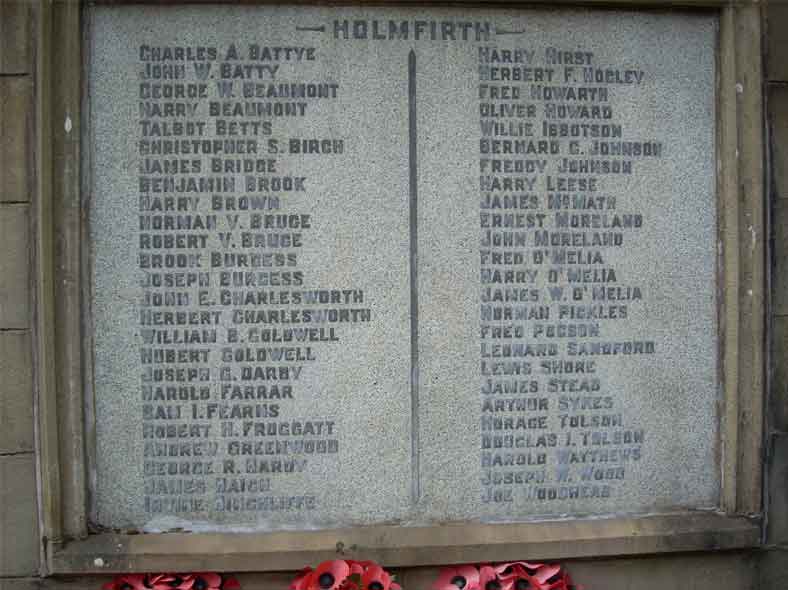
WE
AND YOU.
AUGUST, 1918.
(With Memories of Horace Tolson, Missing, March, 1918.)
We’ve seen the Spring go by—laddie,
The Summer’s going, too,
And Autumn’s gold will soon be here,
Yet there’s no sign of you—laddie,
Yet there's no sign of you.
We've watched the setting sun—laddie,
And seen it rising, too,
We've watched the starry heavens, at night,
With many a thought of you—laddie,
With many a thought of you.
We’ve sat around the fire—laddie,
It seemed all we could do,
To talk, and think, and talk again,
And wonder—where were you—laddie?
And wonder—where were you?
We leave you in His care—laddie,
Who marks the sparrow's fall,
Trusting to bring you safely through,
Whose hand is over all—laddie,
Whose hand is over all.
AUGUST, 1919.
Yet if in His great love—laddie,
He's seen it best to take
You to Himself in Glory,
Although our hearts should break,
We’d bow our wills to His—laddie,
And thank and praise Him, too,
For all He’s been to us—laddie,
To us — to "We and You."
HOLMFIRTH.
(Author unknown)
An Entry in his College Yearbook
2/Lt. Horace Tolson (1905—07) was a Pupil Teacher at the Hade Edge Council School, Holmfirth. He entered Westminster College in 1905, on the strength of the King’s Scholarship, 1st class. Whilst in College he took a high place, and distinguished himself in every branch of the life here. During his second year he was one of the College Officers. He possessed an excellent voice, was good in athletics and a fine sprinter. He took first-place among the non-University students, and proved an earnest and stimulating teacher. Upon leaving College, he was appointed to the Morrison Council School, Sefton Park, Liverpool, and became a Sunday School Teacher and member of the Lodge Lane Wesleyan Church. In September, 1914, he enlisted in the lst West Lancs. Field Ambulance, training at Liverpool, Blackpool, and Canterbury. In January, 1915 he injured his knee, and was in hospital until the following July. On October 9th he sailed with his unit for Lemnos. For two years he served with the famous 29th Division at the Dardanelles, in Egypt, and in France. In July, 1917, he returned to England for the first time and joined a Cadet School at Oxford. He was gazetted in November to the 8th Royal Warwicks and, after a few weeks spent at Cramlington, left again for France in January, 1918. On the 30th March he was reported wounded and missing, and the only information comes through a fellow-officer who was wounded at the same time. The attack began early on the 30th and three of the officers were in charge of machine guns, with instructions to hold the enemy back as long as possible in order to prevent the Brigade being surrounded. He was last seen in the rear of his men directing their retreat, and probably fell soon after, hit by rifle or machine gun bullets, somewhere in the neighbourhood of Demuin. His letters testify to his cheerful and willing service, and the regard in which he held his Alma Mater.
A letter dated 7th January, 1919, has come to hand from Mr. W.A. Cummings, the father of Lieut. W. A. Wesley Cummings (1913—1915), to the effect that the War Office has issued an official notice that they can hold out no hope of his being alive, and presume that he was killed on April 13th, 1918. On that date he was reported missing—the day after Sir Douglas Haig's "Back to the wall" order to officers and men. Every effort has been made by the family to obtain news from his comrades who survived the action. It is described as an awful day, and ranks were so mixed up that definite news could scarcely be given about any one. We had hoped, along with the family, that news would come through of W. Cumming's safety. We sympathise deeply with the family.
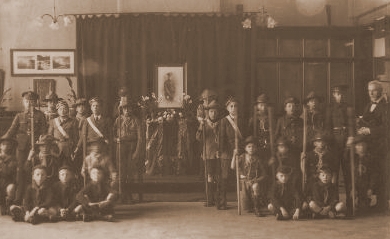 Memorial Service in the
Boy
Scouts
Memorial Service in the
Boy
Scouts
An entry in The Aliens Committee Minutes 1st April, 1919
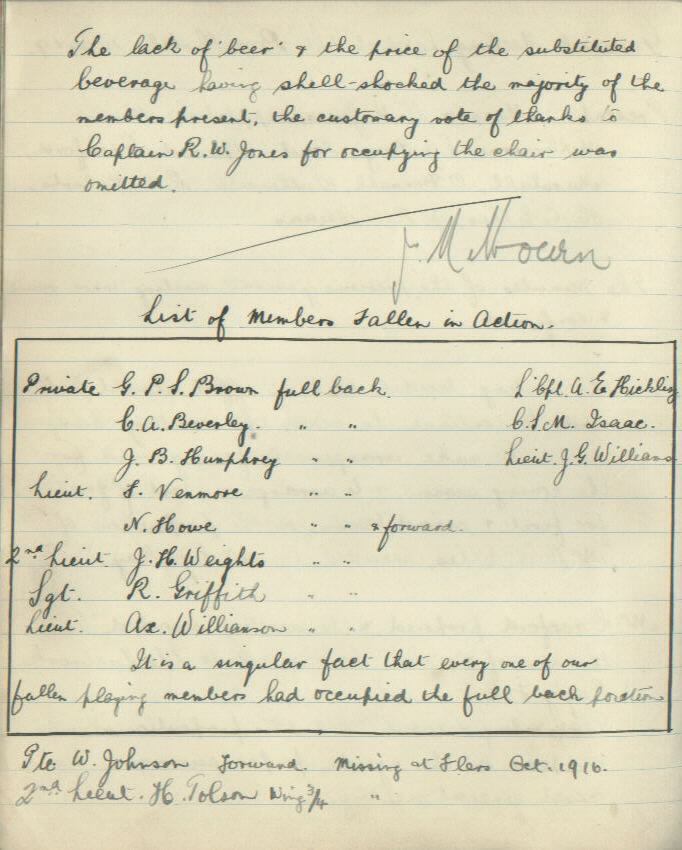
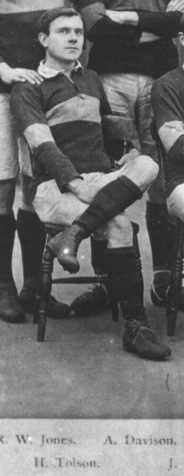
Medal Index Card
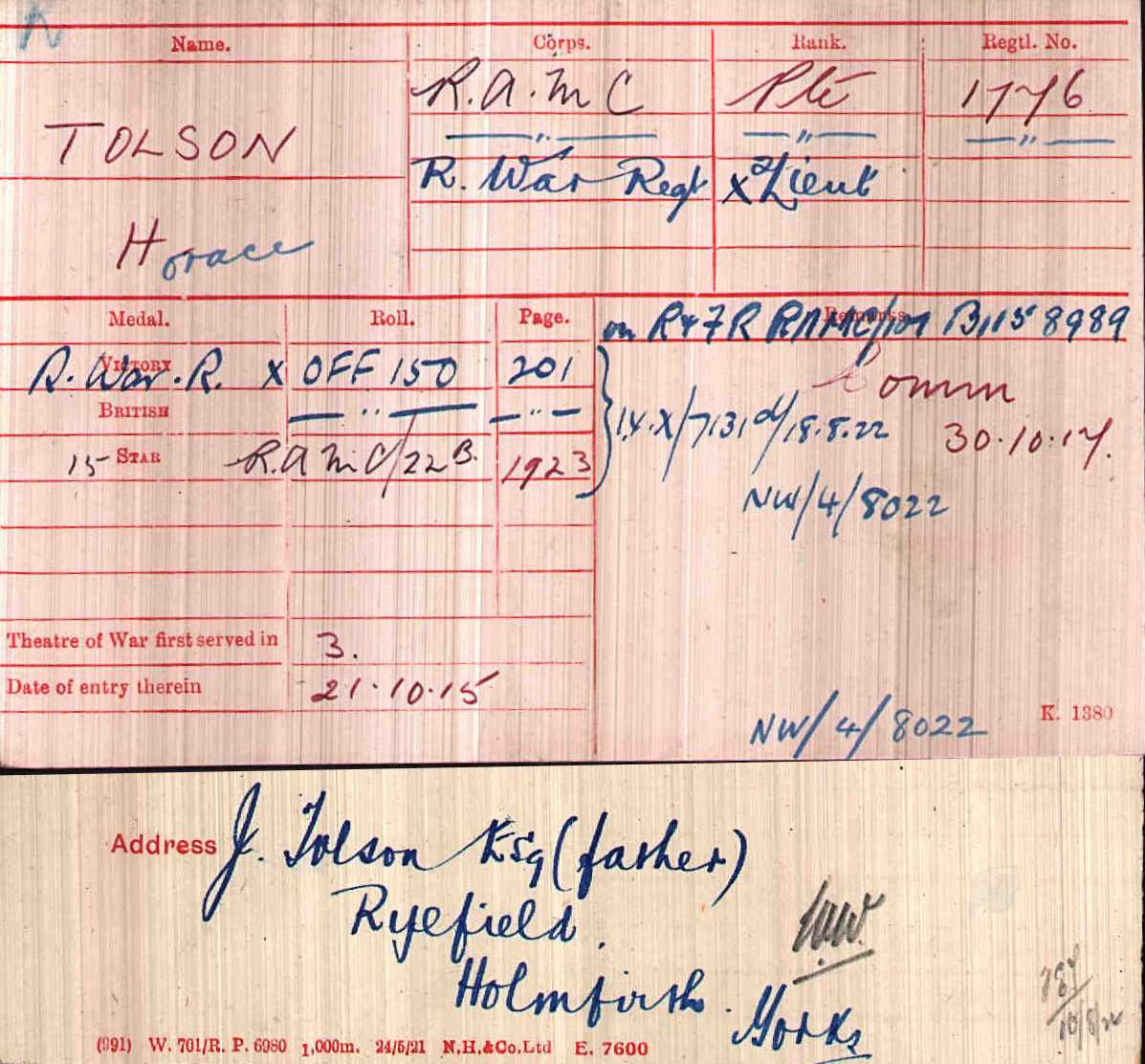
[Ancestry.com - Military]

[Ancestry.com
- Soldiers Effects]

[Ancestry.com - War Diaries]
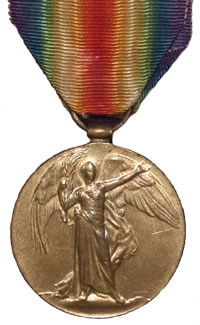
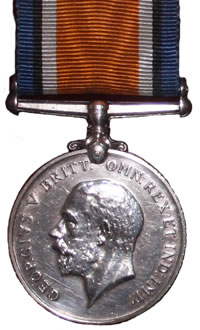
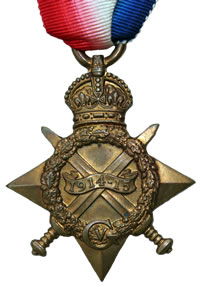
The Allied Victory Medal British War Medal, 1914-18 The 1914-15 Star
As regular units from
the further garrisons of Empire arrived back in England, many having
waited until a Territorial unit had gone out to replace them, they were
formed up into three Divisions, numbered 27th to 29th. The 29th,
consisting of units that arrived from the most distant stations, was
formed in the Stratford-Warwick-Leamington-Rugby-Nuneaton area in
January-March 1915. Originally intended for France, pressure on Lord
Kitchener to launch a ground attack at Gallipoli forced him to deploy
the Division there. The Division embarked at Avonmouth on 16-22 March
1915 and went via Malta to Alexandria. On 7 April re-embarkation began
for the first units to have arrived at Egypt, for the move to Mudros.
The Division landed at Cape Helles on Gallipoli on 25 April 1915 and
subsequently took part in the following actions:
1916
On the nights 7-8 January 1916, the Division was evacuated from
Gallipoli and all units returned to Egypt. Orders were received there
on 25 February for a move to France. Embarking in March it arrived at
Marseilles and moved to concentrate in the area east of Pont Remy
between 15 and 29 March. The Division remained on the Western Front for
the remainder of the war.
The Battle of Albert*
The Battle of the Transloy Ridges*
1917
The First Battle of the Scarpe**
The Second Battle of the Scarpe**
The Third Battle of the Scarpe**
** the battles marked ** are
phases of the Arras Offensive
1917
The Battle of Langemarck^
The Battle of Broodseinde^
The Battle of Poelcapelle^
^ the battles marked ^ are
phases of the Third Battles of
Ypres 1917
The Battle of Cambrai
1918
The Battle of Estaires+
The Battle of Messines 1918+
The Battle of Hazebrouck+ including the defence on Nieppe Forest
The Battle of Bailleul+
+ the battles marked + are
phases of the Battles of the Lys
The Action of Outtersteene
Ridge-
The capture of Ploegsteert and Hill 63-
- the battles marked - are
phases of the Advance in Flanders
The Battle of Ypres 1918++
The Battle of Courtrai++
++ the battles marked ++ are
phases of the Final Advance in
Flanders
After the Armistice the Division was among those selected to march into Germany to occupy the Rhine bridgehead. All units crossed the Belgian-German border at Malmedy on 4 December 1918 and arrived in Cologne five days later. The Division crossed the Rhine by the Honhenzollern Bridge on 13 December. Gradually, demobilisation began and by March 1919 most units were down to cadre strength.
(Source http://www.longlongtrail.co.uk)
[As Horace's letters begin in January 1916, here are the memories of Maurice Greaves to describe what happened to the 29th Division in Gallipoli 1915]
Photographs in this and Correspondence section www.flickr.com/photos/eethompson
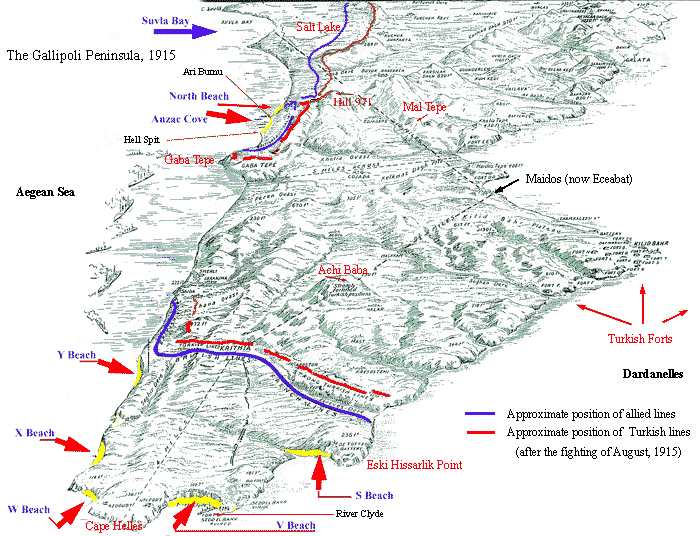
(Map from www.anzacs.org)
A History of the Gallipoli Campaign says: "The 29th Division was probably the best British division that served at Gallipoli, and one of the best of any nation in the campaign. Although brand new as a division it had the advantage of containing a large number of professional soldiers who had not yet been worn out on the battlefields of the Western Front. The 29th can thus be considered as a crack division of well-disciplined and well-trained men. The Division’s historical performance in the campaign also bears witness to the division’s resilience, as the 29th was to attack again and again on the Helles Front, losing heavily in the process, but nevertheless always seemed to be able to spearhead one more push. When the 29th Division first set out for Gallipoli they were 17,000 strong. Over the next 9 months they suffered 34,000 casualties. So in other words they were effectively wiped out twice in nine months. The casualties of this one British Division were more than the total casualties of the whole Australian and New Zealand forces." The Gallipoli campaign eventually involved a total of 468,000 British, Commonwealth troops and French troops, and there were a further three Australian/New Zealand (ANZAC) divisions. The British and Commonwealth casualties (dead, missing and wounded) totalled 119,400. The ANZAC casualties were 26,000. The Campaign The eight month campaign in Gallipoli was fought by British, Commonwealth and French forces in an attempt to force Turkey out of the war, to relieve the deadlock of the Western Front in France and Belgium, and to open a supply route to Russia through the Dardanelles and the Black Sea. The Dardanelles were a fifty-mile long strait separating the Aegean Sea from the Sea of Marmara and on to the Black Sea. Turkey controlled both sides of the Dardanelles at that time. Gallipoli was the name of a Turkish town (Gelibolu) near to where the main attack took place, and its name became later adopted by the British and their allies for the whole campaign. The intention was that a series of major naval attacks on the fortifications in the Dardanelles from 19 February onwards would soften up the defences and make it relatively easy to invade with land forces. However, this was abandoned as the major strategy in late March after some ships were lost to mines. The commanders shifted the emphasis of the operations from a mostly naval to a military orientation. The naval attacks had forewarned the Turks who were able to fortify and strengthen their defences for two months before the assault by military forces. Of the British troops, only one army division – the 29th Division – was available for a difficult and dangerous assault on well-defended terrain, together with a naval division, a French division and the ANZAC contribution. The original intention had been that this relatively small force (with other allied troops) would be sufficient to attack and hold an area already defeated by naval battering. This proved to be significantly over-optimistic.
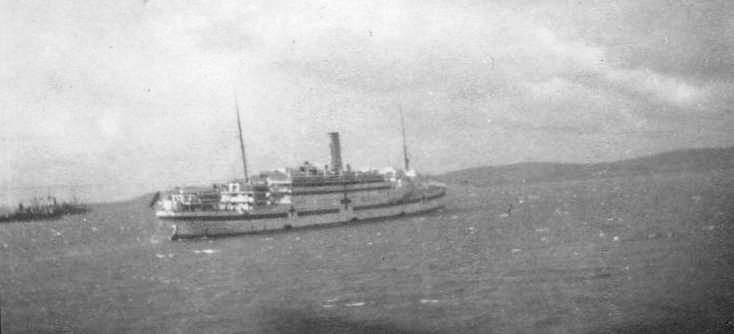
The 29th Division and its part at Gallipoli Setting off on their journey from Britain, on 16 March 1915, the 29th Division sailed from the port of Avonmouth, landing in Alexandria in Egypt two weeks later. On the medal card of Maurice Greaves (obtained from the National Archives), the date of his entry into "theatre of war (3)" is given as 30 March 1915.
The "theatre of war (3)" was Egypt, a British protectorate which was the base for all British military operations in the Near East and Middle East at that time. A contemporary account from a soldier stated: "We arrived in Alexandria and boarded trains bound for Abbassia Barracks just outside of Cairo. These barracks were nothing more than four walls with a roof. Here we stayed for 4 days. Next, we were on to Polygon Camp. This camp consisted of tents that the Regiment set up themselves. The tents were designed for the desert heat, having a double roof that provided some insulation from the scorching sun. But nothing could relieve us from the flies that came by the thousands and tormented the men constantly during the day. The men switched from their "heavy" uniforms to the "desert" shorts and sun helmets. We trained daily and paraded often." Early in April, the 29th Division set off on their route towards the place of battle, starting with a train journey to the port of Alexandria. The troops then embarked onto ships, and headed for the main transit base of Mudros on the Greek island of Lemnos. The sea trip took nearly four days. Here they waited for the invasion force to be assembled, and did more training, including training in disembarking from ships for military assault on land.
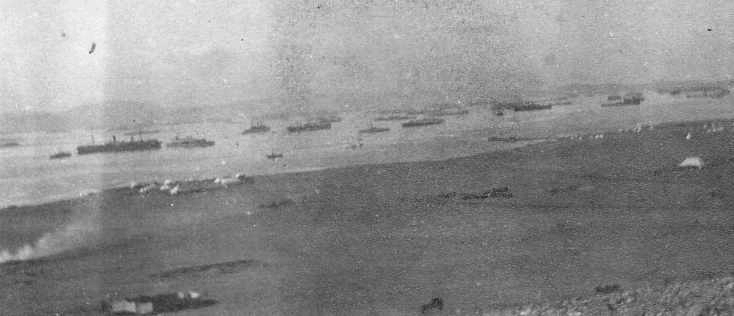
The force now gathered was called the Mediterranean Expeditionary Force. It consisted of 77,000 Allied troops. They were, principally, the British 29th Division, the 1st Royal Naval Division, the Indian Division, the 1st French Division and ANZAC troops.
On 23 April at 5 pm, the transport ship Caledonia left Lemnos with the troops, and on 24 April had reached the Greek island of Tenedos where the troops transferred to the assault ships.
The 29th Division had been allocated five main assault beaches on the peninsula: Beaches S, V, W, X and Y. These were all around Cape Helles. Two other assault beaches were allocated to the ANZAC troops and one to the French. The 1st West Riding Company (Royal Engineers) were among the 2,000 troops allocated to "V" Beach which proved to be one of the most difficult beaches for assault. (The area was named Sedd-el-Bahr by the Turks) The ship which carried most of the troops for "V" Beach was the SS River Clyde, an old 4,000 ton converted coal freighter. The troops were mainly carried in the coal holds, and some openings had been cut in the upper hull to allow the men to embark via gangways. SS River Clyde The troops on board SS River Clyde for the invasion were recorded as: No. 1 Hold (upper deck). 'X', 'Y' and 'Z' companies, Royal Munster Fusiliers. No. 1 Hold (lower deck). 'W' company, Royal Munster Fusiliers. One company Royal Dublin Fusiliers No. 2 Hold. 1st West Riding Company Field Engineers. Two companies Hampshire Regiment. Nos. 3 and 4 Holds. Two sub-divisions Field Ambulance. One platoon 'Anson' Battalion Royal Naval Division. One signal section.
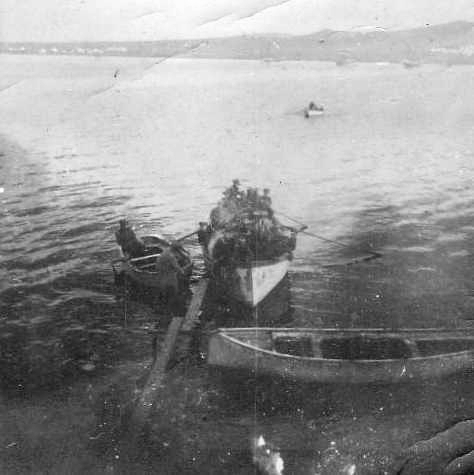
The assault took place on the morning of Sunday 25 April. (A soldier on board reported that they had been provided with iron rations to cover three days - biscuits, canned bully beef and half a pint of water per day - and that all men had been issued with cocoa the previous evening.) V Beach was about 300m (330yds) long at the base of a steep incline. The beach had been sealed off at both ends by fortifications and cliffs. The beach was combed with trenches and barbed wire entanglements and strongly defended.
As the first wave of troops made their way to the beach, for a considerable distance the bottom had been strewn with barbed wire and as the soldiers leapt into the water they found themselves entangled in the wire and were shot down where they stood. Turkish fire ravaged their numbers and caused severe casualties. Six Victoria Crosses were awarded on the first morning.
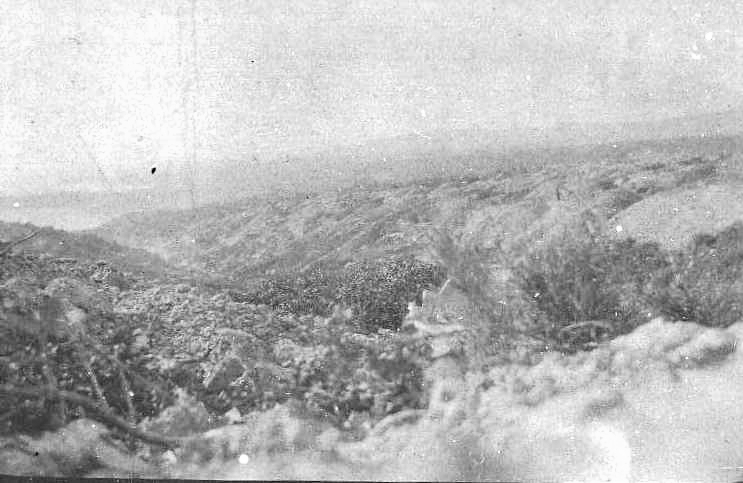
Those troops reaching the shore alive took shelter beneath the sandhill at the water's edge and could not move. Turkish fire prevented any movement inland as well as any attempt to reinforce the survivors on the beach. The British forces held until nightfall when firing died down and the rest of the troops on board (including the West Riding Company in this second wave) could make it ashore. Fighting resumed the next day again with severe casualties, but 29th Division troops were able to seize their first-day objectives and establish a continuous line between the separate landing beaches. A further three Victoria Crosses were earned. V Beach was handed over to the French eventually, in whose hands it remained for the remainder of the campaign. One of the French troops who joined the assault left this account: "On April 28th, 1915, we landed on Gallipoli. We were the first French troops to do so. We went ashore on V beach just beside the River Clyde, the ship from which the British had landed a few days before. The sea was full of dead bodies.
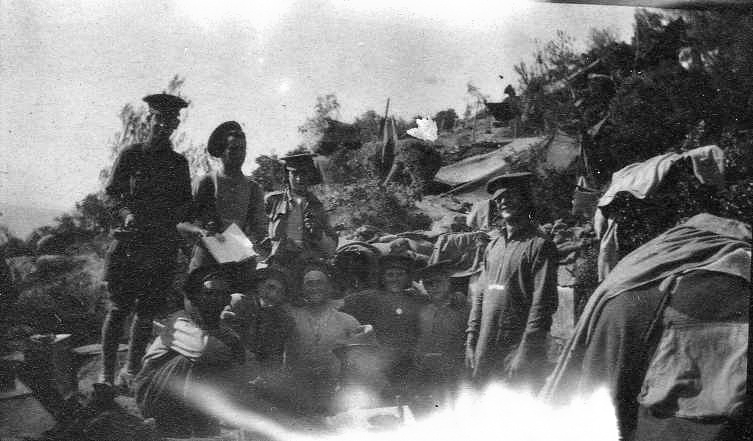
The English had cleared the way and our landing was without incident, That day we started marching and in the afternoon (the 29th) the real fighting began. We were holding the right of the line farthest from the sea with the British on our left. It was chiefly hand-to-hand bayonet fighting and we were up against what seemed to be an inexhaustible force of Turks. It was terrible to see the way our men were slaughtered. We lost about half the battalion and three-quarters of our officers were killed." The battles throughout the peninsula dragged on for eight months with much loss of life.
Essentially, the two sides - Allied and Turkish - were left in a state of deadlock. It was reported that they faced each other, sometimes only metres apart, in a state of increasing discomfort. Searing heat and the swarming flies (made worse by unburied corpses in no man's land) tormented the men. The conditions were exacerbated by water shortages. In October and December 1915, winter storms caused much damage and human hardship. Disease flourished in the insanitary conditions. Of the British casualties on Gallipoli in the trench warfare conditions, over half were due to diseases. Chief causes were dysentery, diarrhoea, and enteric fever. Total Allied withdrawal of its troops and abandonment of the entire campaign – after so many deaths and casualties - took place by January 1916.
(Source - Driver Maurice Greaves 1st West Riding Field Company Royal Engineers (d.9th Dec 1915) www.wartimememoriesproject.com/greatwar)
Correspondence from Egypt and France 1916-17
A letter from Horace Tolson to his sister, Edie, in Australia.
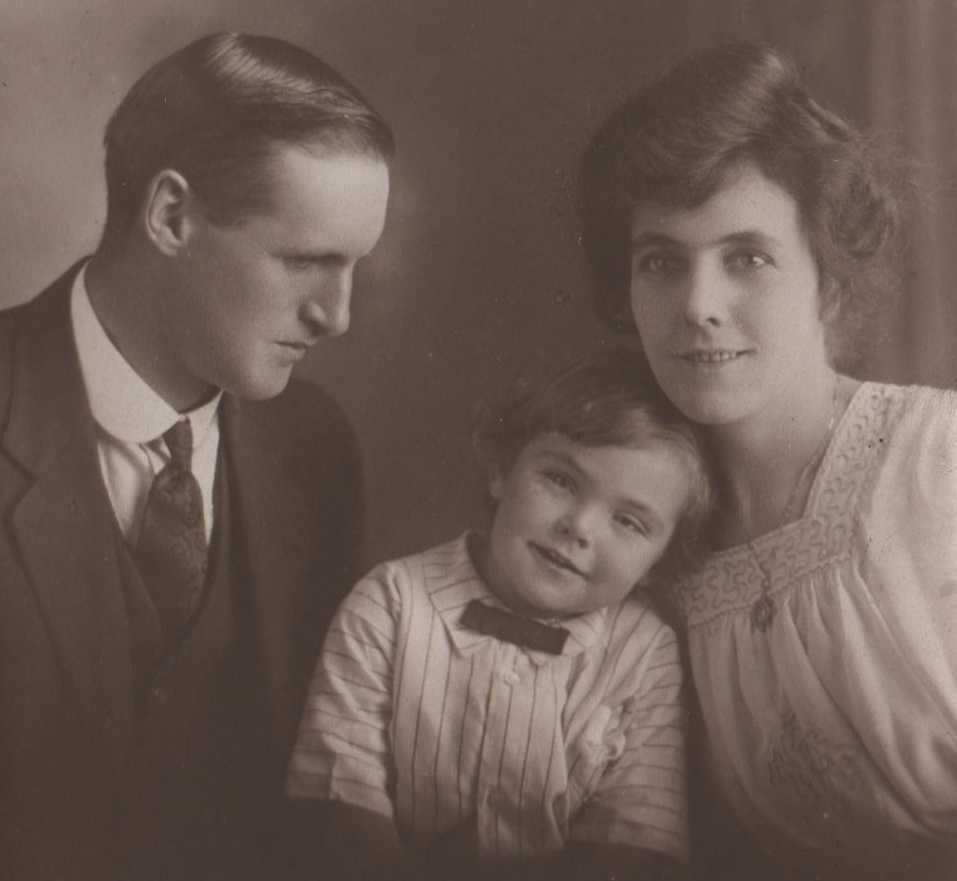
Jack, young Trevor and Edie
26.1.1916
My dear Edie and Jack,
Thanks awfully for the sleeping helmet, hankies and socks, which have just arrived after many wanderings. The letter has not arrived but we have had no mail this year yet, so it is probably following us about some-where. How your package came through I can scarcely explain for it was in a batch of returns from a big convalescent camp, which was our last charge in the Peninsular (Gallipoli) operations. You ought to have heard our boys cheer when the postman came in with a couple of bags on his back.
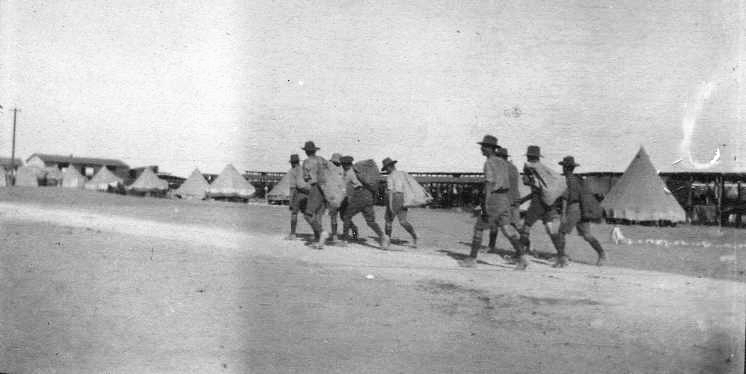
He was immediately surrounded by an eager crowd an - my little package was the only one for any of the unit - the others being for men who had been with us as patients. And whose letters had be sent on to our postman here - why he knows not.
If we could only get our letters I think there would not be so much discontent among the boys, for though we are not hard worked at present the food so poor it takes all our pay to live anything like decently. Even on the Peninsular we were seldom without bacon and jam - here we can get neither, and our chief food is bully and biscuits and cheese, with a bread ration perhaps every second or third day. Then the tea is seldom fit to drink; it is quite bitter.
We are just on the edge of the desert and yesterday had a terrible sand storm. There was so much dust in the air that - between gusts - one's eyes could be opened for a second or two, the air looked like a thick fog. The dust filled everything; even the air (letter missing a few lines here)
It is no use describing our 1,000 mile move for it would only cause the mutilation of my letter (by censorship). But I will say that were well escorted and saw no submarines. We had hoped to be able to spend an hour or two roaming round Alexandria (Egypt on the Med.) but we were transferred straight from transport to troop trains for a wearying journey down here. We were so tightly packed that we took turns at lying under the seat to snatch an hour's sleep.
I have seen several train loads of Australians pass up the line and yesterday down at the soldiers Club in Suez there was an Australian singing after tea. He had a magnificent bass voice and it was a treat to listen to good music after such an absence.
I should have gone to the service at the Eng. Church but unfortunately Sunday managed to be my piquet day.
There seems to be quite a mixture of races here - Arabs - Egyptians - French, Greeks, Italians.
Some of the Arabs are fine six-footers but I don't think they are of the best class - they are so dirty. At first we found a native village, Arbaeen (Al-Arbaeen, Suez City), very interesting, but now we have explored the native quarter of Suez we appreciate more the skill of native Craftsmen, many of whom speak good English.
Last Sat. I and two chums had a day out and went to Port Tewfik (now Port Taufiq, south end of Suez Canal). There is a fine boulevard by the shore of the Red Sea. We had tea at a nice place sheltering under the name of the Hotel Savoie but could not for the life of us make the Coolie waiter understand what 'poached egg on toast' meant. He understood 'eggs and bacon' well enough and there we had to sit, - (letter missing a few words here) the scene and then got what we asked for.
On our return, when a couple of miles out of Suez we came across an Arab boy in charge of three donkeys.
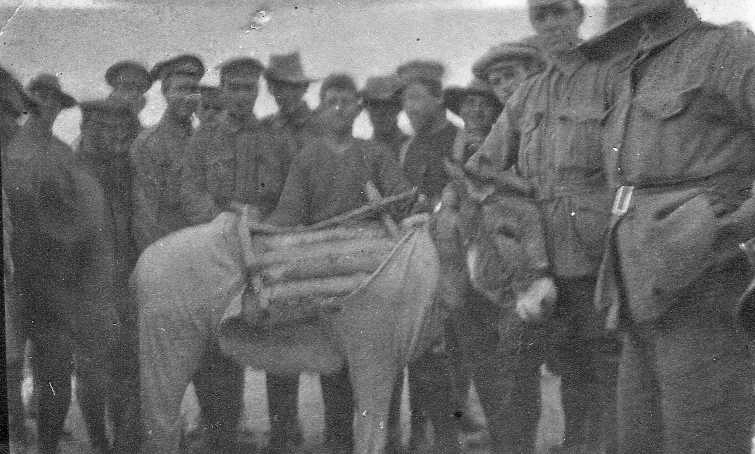
I will leave you to imagine the bartering scene that followed - N.B. An Arab would not believe you if you accepted his first terms without argument. It is as natural for him to argue and barter as it is for a duck to swim, and he expected you to do as he does. Well, in the end we got the 'mounts' for three piastres (7½d) each. Then the fun began and I question whether we enjoyed more than the Ghurka troops who happened to be passing. I shall derive enjoyment from the memory of that ride as long as I live.
Well children, no more at present. I wrote last week but you will probably get this first as I am actually using such a civilised institution as the P.O. to send it.
Be good - use regimental address.
Ever your loving brother
Horace.
A letter from Horace Tolson to his sister, Edie, in Australia.
1776. A.Section
87th Field Ambce.
R.A.M.C.
29th Division
Br. Med. Ex. Force.
14.2.1916
My Dear Edie and Jack,
By last week's mail I got all- at least I suppose all - your letters, from when I left England, or rather that you wrote since I arrived 'East.'
The earliest one dates Oct.23 '15, then follow Nov 15, (these two have been forwarded from Holmfirth) yours and Jack's of Dec 14th, yours of Dec 22nd. Then two days later came yours of Jan. 6th. I have already told you of the safe arrival of the parcels- the light sleeping helmet was just the thing I've wanted for months, for I can't wear the hairy army ones - You know my head was always a little soft wasn't it ? How I've enjoyed Jack's cigarettes !!! State Express are quite a luxury here.
It's quite impossible to account for the A.P.O. workings, but now we have settled down - for how long I wonder on the edge at least of civilization we are getting mails in fine style - Today we got letters posted in L'pool on Feb. 1st.
I've just come off 24 hrs piquet, taking 2 hrs on and 4 off and as the day has been a perfect scorcher I am just as tired as I care to be. Piquet is coming round just a trifle too frequently to be altogether welcome at present - every 3rd, 3rd, 3rd and then 6th days.
Last night it was rather interesting though for the 86th Brigade had struck their camp earlier in the day and before moving off about 4.30 this morning the men spent most of the night squatting and reclining on their packs round scores of small camp fires. This is the 'Fusilier Brigade' of our division and the troops who made the 25th of Apr. famous for their work at Lancashire Landing. Our own Brigade (the 87th) landed at little further along at x and y beaches - I dare say you have a Gallipoli map and now such facts as I am telling you are in no way breaking the rule about mentioning movements of troops in our letters, so you can find out more where I have actually been.
We landed at Lancashire Landing and marched first to the top of the cliffs to report arrival. After a bully and biscuit breakfast we came down and took the beach road across the 'top', but this could only be done by a column of troops during the night as the enemy guns from the Asiatic side had the range to a nicety. Most of our time was spent in various parts of Gully Ravine - The scene of our navvying operations - Alas ! to what purpose now. The worst part of where our draught worked was at 'y' beach, which connected by a big Communication Trench from near the head of 'The Gully.' The shelling along here used to be awful at times. But those days are passed and I think it will be better not to refer to those days of that Glorious Failure too often.
I saw that in one of the papers a question had been asked about taking the 29th and 42nd Divs. Home as they had suffered such terrible casualties, but the answer given was that such a step would not be advisable. Instead the men would be given a rest and if possible leave. Those who were in the landing and who have not been off the Peninsular sick are getting 4 days leave in Egypt but at the present rate of progress it will take a long time to get through it. I wish it would extend to me - Shouldn't I just love three days in Cairo.
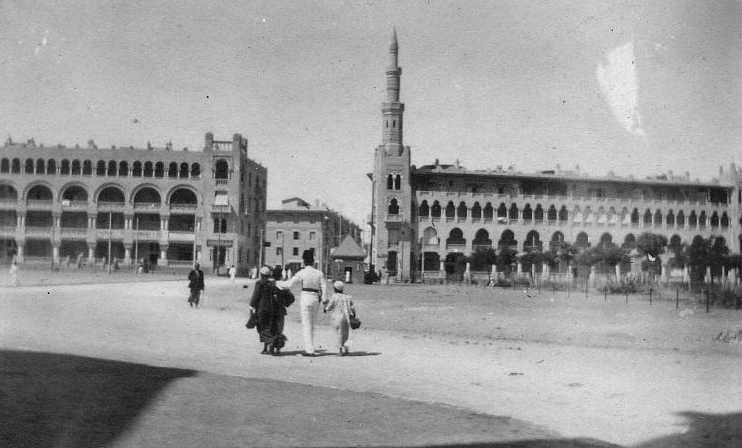
Really, Edie, I do not know what to think of the Australian troops. I was down at Suez Station a few nights ago when a troop train came through from the docks at Port Tewfik, the port for Suez. They were Australians who had just landed and of course as their train passed through the Station we gave them a rousing cheer. A few boys were riding on top of the train and whether their attention and look out was for the moment attracted to other sources I do not know; but before we had time to warn them the train travelling about 30 mls per hr was under a footbridge which connects the platforms and either three or four were knocked off. One had a miraculous escape and beyond a few bruises was none the worse but I don't think one would live to reach the Gov. Hosp. at Suez. It was awful. I have seen the results of bombs on the Peninsular but somehow this accident only 3 miles from the Docks seemed worse. Well, I came up to camp to find that 'C' Section bearers had just been called to go a short distance up the line, which runs across the desert quite un-fenced, as there had been another accident. This time the train had passed under a wire. Connecting some telephone posts or something of that sort, but the results were much worse. Three were brought into our field hosp. more or less injured and three were killed. According to the statement of one in hospital they were larking and wrestling on the roof of the carriage.
Give the men their due, the story of Anzac shows that they are the best fighters it is possible to put into an attack - but out of action they are wild beyond description. Why won't they be amenable to discipline, Edie ? Just think of what I've told you, all within 5 miles of Port. I don't know where they are going but train load after train load have passed up the line during the last few days.
It may be our turn to move next as well. I have already told you - Our Division is at full strength again and the men have come on in health wonderfully down here. Of course the real heat has not commenced yet, and at present it is not unbearable.
Well, must close now but will write again soon.
Again thanking you awfully for the parcels
With all love to both of you
Ever your loving
Horace.
Lancashire Landing April 1915
(From www.1914-18.co.uk/brooke)
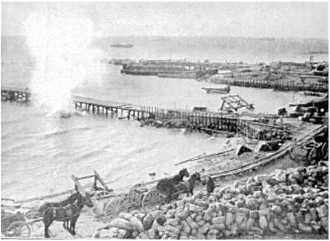
'W' Beach
1st Lancashire Fusiliers
1 platoon of the Anson Battalion, Royal Marine Light Infantry
Headquarters and 3 platoons of the Anson Battalion, Royal Marine Light
Infantry
Naval and Military Beach personnel
Headquarters 86th Brigade and Signals section
1st/2nd London Field Company, Royal Engineers (less one detachment sent
to 'S' Beach)
On 25th April 1915 whilst Rupert Brooke’s friend Sub.Lt Dodge was landing under fire at "V" beach, just west at "W" beach, a landing which was to become famous as "Lancashire Landing" was being undertaken by the 1st battalion Lancashire Fusiliers. The ship’s boats of H.M.S. Euryalus and H.M.S.Implacable were lowered and heavily laden men of the battalion embarked by the ships’ gangways. Tows of six boats were made up and each tow was linked to a steam pinnace under the command of a Midshipman.
As the boats neared the shore the naval bombardment of the beach began. The beach on which the landing was to be made was about 350 yards in width with cliffs about 100 feet in height. A belt of barbed wire stretched right across it and when this was noticed orders were immediately given that the attackers were to lie down behind the wire whilst the wire cutters made a sufficient number of passages for the men to pass through.
As the naval bombardment ceased, the Turkish troops opened fire on the Lancashire Fusiliers going ashore. It was impossible for them to miss. The Fusiliers’ rifles had become clogged with the beach’s silver sand and sea water and they were unable to fire in any effective response. Enfilading fire from the Turkish machine guns caught the attackers in the open and it was some time before a lucky shot from a Lancashire Fusilier managed to silence a sniper who had caused numerous casualties by his very accurate shooting. Nevertheless the Fusiliers managed to pass through the barbed wire and start the ascent of the cliff and by 7.15 a.m. some sort of line was established which would protect the beach from aimed fire.
The heavy casualties amongst the Brigade staff – the Brigadier was wounded and the Brigade Major killed- made for some disorganisation but eventually the beach and its immediate area were captured and survivors amongst the Turkish troops taken prisoner.
General Sir Ian Hamilton ordered that "W" Beach should be re-named Lancashire Landing and it was the intention that this name should be as official a title as that given to "Z" Beach which became "Anzac" for the Australians. It was not to be. Whilst "Anzac" was retained, "Lancashire Landing" was ruled to be an unsuitable title and the name "W" Beach was reinstated.
There is, however, a link between the exploits of the 1st Lancashire Fusiliers at "Lancashire Landing" and the Anzacs at Lone Pine. The attack by the 1st Battalion Lancashire Fusiliers on 25th April 1915 resulted in the award of six Victoria Crosses to officers and men of the battalion. On 9th August 1915 six Australians also won the Victoria Cross in their attack at Lone Pine – one of whom was Captain Alfred John Shout whose name on the memorial is depicted on another web page.
As regards the 1st Bn. Lancashire Fusiliers the survivors came back to England where they were reinforced and then sent to France. The battalion again distinguished itself, this time on the 1st July 1916 at the White City, near the infamous Hawthorn Redoubt.
A letter from Horace Tolson to his sister, Edie, in Australia.
Suez - 20-3-1916
Dear Edie and Jack,
I haven't written to you for 3 wks because during all that time we have been daily expecting orders to quit, and I wanted to write down our new destination. Nor I suppose our whole division is at its new sphere and I am still here. I'm afraid I shall have rather a mournful and uninteresting yarn for the beginning of which I must go back a little. But first as I'm such a good hand at forgetting what I ought to mention, let me say that I am sorry to hear that Jim Begg has been wounded and that I do hope he is well on the road to recovery now. I don't think there is much chance of meeting either him or Richards. I've seen thousands of Aus. reinforcements pass through on the train but never met any or been where they are quartered.
Now to my own yarn.
Since coming down here I've been most remarkably fit, until the real hot weather started a fortnight ago, when after a rather heavy day I felt knocked up with the heat. I got a high tempr and the most rotten headache and had to lie in a tent in camp for two or three days when as I got no better the M.O. packed me off to the Field Hospital here. I did not feel ill but absolutely knocked out. I have been here over a week now and except for a slight headache occasionally I feel quite alright again. Well you might say - there's not much to worry about in that - Neither is there !! But - three days after I came here the boys moved off and I can only guess where. My guess though makes me more 'wild' than I can express that I've had to stay behind.
Early next week I expect to be sent to Alexandria to the 29th detail camp and if I have good luck I may go with a draught soon to the Division.
But on the other hand if I have no luck !!!! The prospect of staying indefinitely at a detail camp, or more horrible still, of being attached to some other unit or perhaps a hospital in Alex. is not attractive.
Then there is the mail. As I never dreamed there would be such a sudden move I told my chum to keep all my letters, as I should be sure to follow with the 88th or 89th F.A.s the other two of our division. Well it seems as though I shall have to be without letters for about a month now.
You see I have landed myself in a pretty fix but why it should happen just when it did is the thing that annoys me.
Of one thing I am sure though - I can never stand a summer here. I don't care how cold it may be but the heat always did upset me.
I suppose your weather is becoming a little cooler now eh ?
Will write again as soon as I know what is to happen to me.
With love and all best wishes
Aye yours
Horace
A letter from Horace Tolson to his sister, Edie, in Australia.
Mediterranean Sea.
3hrs out of Malta.
Tuesday, 2nd May, 1916
My Dear Edie and Jack,
Am just writing a few lines now so that I may post where opportunity offers in France, for I think that now there is every chance of safe arrival at Marseilles, where I really ought to have landed with our ambulance about 2 months ago.
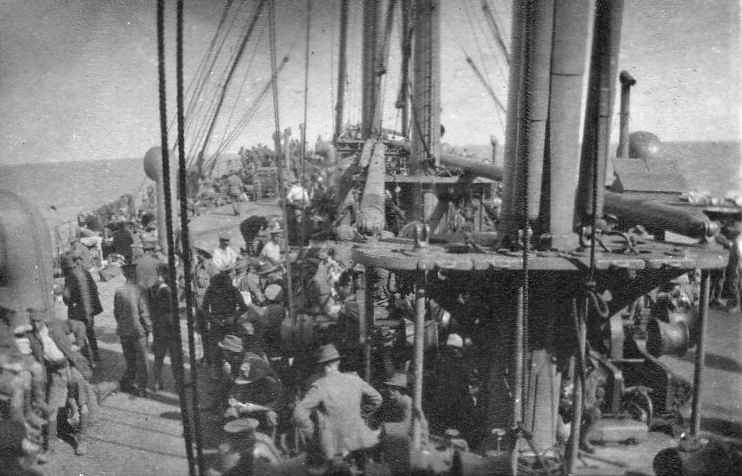
As this will be old news by the time it is posted I can say more than if it was talking with a press reporter. With the exception of our drafts, which comprises men of various 29th Div. units left behind for many different reasons, the rest on board are Australians, and I must say on the whole they are a very nice lot.
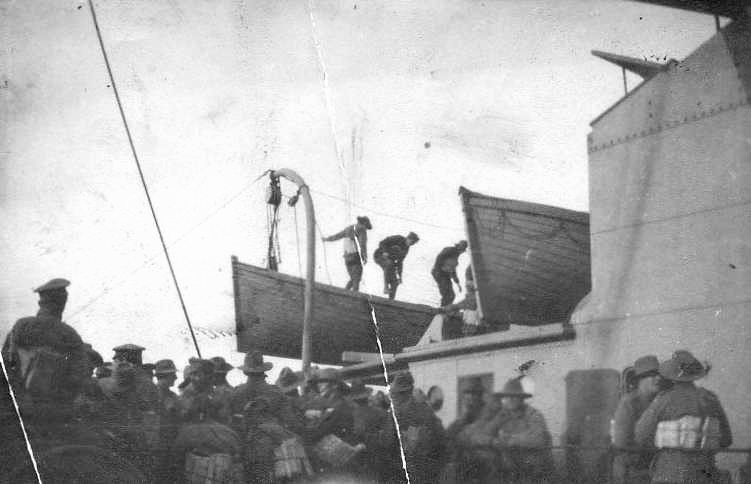
You remember telling me about the affair in Sydney - well some of the fellows on board have mentioned it to me, saying that they 'the Mining Corps' were looked upon as a very inoffensive lot because they did not strike with the others.
I wonder if you or Jack know any of this lot. They certainly are a fine lot both physically, (over 300 are 6' 2" and over) and mentally for the Corps seems to include the pick of the brains in the mining world. I hope they accomplish all they set out to do. The only fault I have to find with them is that they are like a lot of spoilt children about their food. Their treatment on board ship as far as Alexandria has been so good that on transferring on to a Br. Troop ship (always notorious as you know for their bad conditions) they had to find fault with everything. Now this is the fifth troop ship I have been on and as far as grub goes it is the best, though I grant the that the accommodation for washing etc is disgraceful. Of course I don't mean to say the food is beyond complaint. What I mean is that if they had been on some boats they would know what a bad trooper really is. Many of the men are from New South and some of them have only been 'out' for a few years. They have had a rather eventful voyage, leaving Sydney on Feb 22nd - just fancy. They went to Melb. And Perth and leaving W.A. they had some mishap, the boat running aground I think, and they had to put back for repairs. Anyhow they did eventually arrive at Alex. where of course about 200 of them 'broke ship'. They were not allowed much liberty however for the guards were warned to take them to the main guard and most of them were tricked into going there within an hour of leaving the docks. I hope the Tommies who tricked them, and the victims do not happen to meet for if they do there will certainly be trouble.
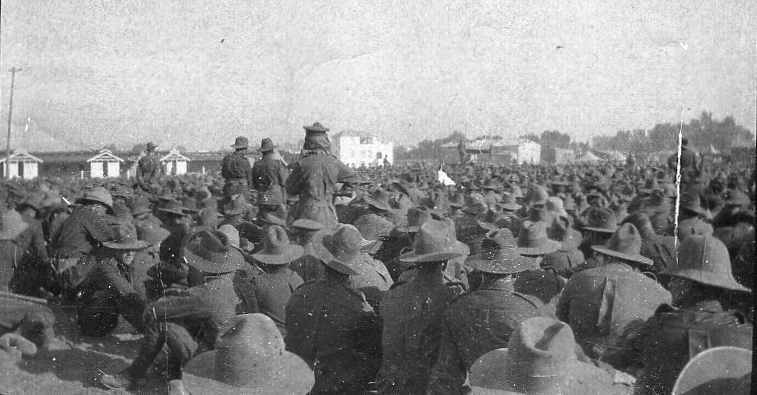
You see the pickets being on the lookout, 'chummed up' with them in town, and pretending only to show them round 'took them in' to the Main Guard as I've said.
We joined them at Alex. last Wednesday morning and sailed for Malta the morning following but the route taken on account of submarine trouble is responsible for our slow progress. It took 3½ days from Alex. to Malta. All Monday we stayed in M and went for a march round Valetta and some distance inland. Your boys(Australians) attracted a good deal of attention, and the streets were packed with people. It appears that we had a very narrow escape just before arriving in Malta, a G.R.Schooner, in the pay of Germany as a mine layer almost crossing our bows. She was brought in to the harbour soon afterwards by a cruiser and I have just heard that six of the crew have been shot, but of course I cannot vouch for the truth of this except the mine laying part. Well we hope to make Marseilles on Friday and I shall be jolly glad when we set foot on French soil. There probably our association with the missing Corps will end unless we happen to travel north together. Personally I think it will do them a world of good to be sent to Aldershot or some other place in England for six weeks, and put under Eng. instructions for drill etc. and curiously enough the more educated men among them seem to think the same. I've been 'giving a hand' with the A.A.M.C. boys on board instead of attending our own parades. They are a nice set and know their work very well.
I don't think I have said much about Alexandria. It is a fine city in many respects. Its docks are magnificent and the harbour large and safe. The shops in the best streets are a delight even to the mere male and I'm afraid you would not be able readily to drag yourself away from them.
It has the usual eastern drawbacks and vices. The native quarters are filthy and squalid and frightfully overcrowded, and I am sorry to say that there has been a rather bad outbreak of typhus. Small-pox is also present and all troops have had to have the vaccination marks examined. Many have been re-vaccinated.
As you will guess I was glad to get away from Egypt though our stay at Suez was a real delight until the hot weather arrived in March, and the 29th men after two months there looked an extremely different set to the men who arrived at Mudros weary and battle worn in the first days of 1916.
Thursday 4th.
Have just learnt that letters must be handed in at once if wanted to go from M. so am sending this in to save time. Excuse abrupt ending. Am feeling as fit as can be (boat is rolling badly today).
All love
Ever yours
Horace
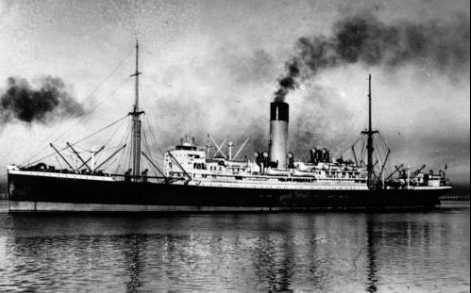
[www.awm.gov.au/collection]
Headquarters 40
No. 1 Company 390
No. 2 Company 380
No. 3 Company 392
1st Reinforcements 101
Total Tunnellers on board 1303 (transferred to B1 Ansonia)
Departed Sydney, NSW 20 February 1916
Arrived Melbourne, VIC 22 February
Departed Melbourne, VIC 1 March
Arrived Fremantle, WA 7 March
Departed Fremantle, WA 1 April
Arrived Suez, Egypt 22 April
Departed Suez, Egypt 23 April
Arrived Port Said, Egypt 24 April
Departed Port Said, Egypt 24 April
Arrived Alexandria, Egypt 25 April
Embarked Alexandria, Egypt 27 April
Arrived Valetta, Malta 30 April
Departed Valetta, Malta 2 May
Arrived Marseilles, France 5 May
Entrain Marseilles, France 5 May
Detrain Hazebrouck, France 8 May 1916
‘On the arrival of our troop ship in Alexandria in April 16, a party of some 120 out of our 1200 miners, with the wanderlust strong upon them, broke loose suddenly from our troop ship as she lay at the wharf, rushed the sentries, and went careering like a lot of released school boys up the main street of Alexandria, making for the heart of the city.
Some bad sport, perhaps one should rather say, one sound disciplinarian, telephoned to the military police. And in due course the sappers were met by some charabancs driven by genial gentlemen, who offered them a lift.
The offer was of course accepted, and presently the vehicle swung into a courtyard, the gates of which were promptly closed, and the sappers then realised that they were prisoners. One hundred and twenty of them were locked up in a building designed for a maximum of 60. The sappers called it the ‘boob". The night was very hot and the "boob" threatened to become a veritable Black Hole of Calcutta.
In the early dawn, an agonized SOS came from the military police to our ship to say that the sappers were tunneling under the walls of the boob, and that it was tottering to its foundations, and would we send up a strong-armed party at once to hold and remove the prisoners.’
Major T.W. Edgeworth David
(Source www.tunnellers.net/bits___pieces/troopships_voyages.ppt)
A letter from Horace Tolson to his sister, Edie, in Australia.
France
3rd June 1916
My Dear Edie and Jack,
The last time I wrote to you was from the troopship in which we crossed from Alex. to Marseilles, - and about 3 hrs out of Malta, where we had stayed 2 nights and a day. We got a few hours ashore there to go for a march to stretch our legs, and the whole of the troops from the ship formed a fine lot. I don't think the Maltese had seen any of your boys(Australians) before. I hope the M.C. came up to their expectations.
I've just begun to receive letters again after being without for nearly 3 mths, ever since our division left Suez. In today's mail were your parcel of the 27th March and a letter from Mag of March 20th. Many many thanks for the cigarettes and hankies. Only yesterday I asked Mother to send me some. (hankies I mean). The sweets also were just the kind I like but I could see who chose them. The parcel was so well packed that in spite of its wanderings in Egypt it was in splendid condition not a cigarette being broken or cracked.
Two days ago I also got your letter of the 6th March (which you will see by envelope has had a history) 27th March, and April 2nd. In the last you inquire if I got letter and parcel of last mail i.e the 27th March - Well as I say I've just got them - in June. Of course I should have received them much earlier but since the beginning of March I have been at nine different places including this the 34th (W.Lancs.) C.C.S. [casualty clearing station] a good distance away from the firing line. Indeed there is small chance of any shells finding their way through these marquees, as they did through those of the 26th C.C.S. at Lancashire Landing of which I have spoken in a former letter.
There was nothing worthy of note during our short stay at Marseilles where I said 'Goodbye' to the boys of the Aust.ed M.C. with whom I had been working during the voyage from Alexandria. They were a good efficient lot and would have formed a fine Sub Tent Division for our Ambulance. I told you what I thought of the rest of your boys(Australians). By the time we docked at M. they had had quite sufficient of the voyage. Has any mention been made in the Sydney papers of the exciting escape from a mine layer in Malta. I met several from Sydney and one from Manly itself.
We left M. on Sunday, May 7th and had a most delightful journey north, seven of us sharing a 2nd Class Cptmt. in a state train. When our boys came over they had to make the same journey in cattle trucks, and we had been looking forward(?) to the same mode of travelling so you may imagine our disappointment. I made a few notes of the journey north. The Rhone Valley is very beautiful; but I will copy a few notes as I wrote them in the compartment.
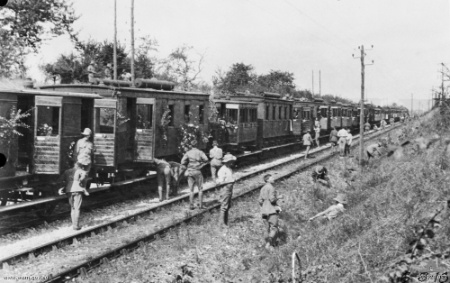
As a troop train carrying Australian soldiers from Marseilles to Le Havre makes a rest stop, the soldiers have disembarked to stretch their legs on the tracks beside the train, rest on the embankment (right) or pick wildflowers to decorate the train carriages.
(photo and narrative from Australian War Memorial Collection)
8.5.16
Today we have journeyed since daybreak through the most glorious country of Southern France, and after Egypt with its glare, its monotonous brown desert relieved only at intervals by the artificially watered parts, the natural greenery, richly enhanced for our special benefit by a refreshing night's rain, has provided a feast for our eyes.
Books are left untouched for there is a sort of subtle harmony between our inner consciousness and the appeal of nature outside. It may be that the return of the men after twelve months absence, to a country, which after all, in its pastoral appearance differs very little indeed from the quiet beauty of pastoral England, has filled them with thoughts which do not find sympathy except in what nature can provide outside. And surely no more is required. The horse chestnut may have a richer fullness, the may blossom appear earlier in the hedgerows, and wild flowers star the rich pastures with more variegated effect, but as each man finds in some particular spot the prototype of a favourite homeland haunt, the effect of the outlook coupled with a sort of speculative element is distinctly that of 'near home.'
On leaving Marseilles, the hills are those of Derbyshire - Tor rising behind Tor, with the town and harbour nestling in a hill encircled basin. Viewed from one of the spurs in the soft evening light the port has a far more picturesque appearance than is the case of with our own great seaports. But this is due in addition to its setting, to the Continental fashion which insists on the avenues of trees to relive the monotonous piles of bricks and mortar, and in a measure also to the redtiled roofs.
Last night we were a very quiet party. Instead of entraining in Marseilles into the usual cattle truck we were fortunate in making a party of six in a II Class Compartment of a State train. We had a last minute addition - comment on whom I avoid except to say that he arrived under escort and spent eleven of his first twelve hours in the train sleeping off the effects of a day's debauch.
Seven is a rather awkward number to fix up for the night's rest. With six there is no difficulty - two on each seat and two on the floor and all sleep soundly; but the odd man is a problem. However after what we had expected seven under such circumstances was travelling in luxury in spite of the fact that the lighting arrangements failed to act, and an inadequate substitute had to be obtained in the form of a small oil lamp, more remarkable for its stability of construction than for its high candle power. The addition of no 7 had pronounced a certain subduing effect and this was enhanced by the lack of light for reading cards or animated conversation. But the combination of circumstances led to an evening after my own heart and when dusk changed to darkness and a sing song was suggested I expected a good time. Solo, ditty, ballad followed each other in steady succession until 11.30, when we gradually fell away and Morpheus[Greek god of dreams] claimed his due.
In the morning, daybreak showed us the beautiful western slopes of the Cote d'Or on our left, and the rich cultivated valley through which we journeyed, contrasted with the general run of Egypt so much that when I started a few notes I had to remark this first.
9.5.16
Twice each day we halt for rations and at the same time make use of the opportunity for airing our scanty French.
But in addition to the 'ration halts,' the stops at Lyons, Chalon and Dijon, provide other opportunities of which we are not slow to avail ourselves, for the chances are that these places we shall not visit again.
At Dijon we had a merry time with the nurses of the Croix Rouge, who were on the platform with collecting boxes for their hospital. But on finding what a penniless state we were in, (we had not been paid for nearly a month) they gave us flowers and small souvenir tricolours instead of wanting any contributions. Twenty minutes stop was all too short here.
At Versailles we only stopped a few minutes but here instead of collecting boxes were pannikins[small tin pans] of steaming coffee and as it was already late in the morning and breakfast halt was some fifty K metres further along the line we did full justice to the refreshing liquid.
The rest of my notes are on the attitude of some of French-civilians and troops and will not interest you at all.
________________________________
Sunday 4th June
I wrote most of your letter last night after fatigues finished at 5pm and I had 'teaed and toileted' (Yes that is the actual order - I was too hungry to toilet first.) I went for a walk through a village about a mile away and when I came back spent the rest of the evening writing.
I shall never forget the evening we arrived at Rouen. The weather was worthy of Holmfirth at its worst and long before I had found a place to pass the night I was drenched to the skin. Being the only Ambce man in the draft I had to find as best I could the part of the huge base to which I should go, but no one seemed to know and after wandering round in the poring rain for an hour and a half I returned and spent the night with some of the friends I had made in the infantry. Next morning I was sent to one of the Territorial Bases, and since arriving there to the time I am writing now I've had the hardest work (physically) of my life. Last Sunday afternoon was the first free time and we have another afternoon today.
On May 17th the ord. sergt. came to me about seven in the evening just as I returned from a dock fatigue, for which we had breakfasted at 4.30 in the morning, marched 4 miles to the docks, worked like slaves all day (on bully and biscuits) and got back as best we could after six in the evening when we finished ---- fortunately I got a lift in a motor lorry for about 2½ miles. Well I was going into the Mess Mess for some tea when the ord. sergt. warned me for draft up the line next morning. Of course I asked him where I was to be sent and he said - "To you own unit of course." At last !!!!!
You can imagine how eagerly I packed my valise next morning and you can also imaging my disappointment (and something else) when on looking at our entraining papers we found they were for D_____ [censored] to join the 34th (W.Lancs) C.C.S. I do not know how long I shall be here but you had better send you letters for me home and I can have them sent on by Mag to where ever I happen to be.
15th June 1916
Since writing previous part I have rejoined old unit. Our men are scattered a good deal with various parts of the division. At present I'm with headquarters building a hospital but may move up to the trenches to our advanced posts any time as all my section bearers are up there. I have absolutely no time to add more to you letter as I had intended - it's all bed (?) and work here. I sleep in and old barn but for two nights have had a 'comfy' bed on straw, and I'm too tired o'nights to mind the rats.
Best love to you both
Ever you loving
Horace
A letter from Horace Tolson to his sister, Edie, in Australia
France 29th June
My Dear Edie and Jack,
Ten days ago I received a bundle of back letters and amongst them were three from you of various dates in Feb March and Apr. I started to write to you straight away but I had to break off to do some pressing fatigue work. I shall soon have been with our boys a month and the time slips by so rapidly that I had no idea it was so long. We get up at four - four thirty and the days are full of work. I am so tired o` nights that by eight I try to get a little rest and some times go to sleep straight away (when the noise from our batteries will allow me)
But I begin at the wrong end!!
When I joined the old unit I had to stay at headquarters helping construct a rough hospital, though my section bearers were up in the trenches or at their advanced posts. You see we are very much split up—much more practical. I was there- a village 6 miles back from here- a week!
Our quarters were in an old barn but I had a `comfy` bed on some straw and soon got used to the rats. At first if I heard one burrowing its way through a `runway` I used to launch out with my fist, but
(Part of letter missing – 1 page)
... in some wounded men from a farm about ¼ mile away! The flashes from our own batteries and those of the German shells exploding made the place appear like the centre of a lightning storm and the roar of the guns was awful. We expected a shell finding us every minute but only as we were coming out of the yard with a man whom we had got out of a cellar had we a lucky escape. I had the rear of the stretcher and the man in front sudden backed as we heard a shell making apparently for the crazy old place already half in ruins. Fortunately it passed just over the post and burst about 20 yards away! - afterwards we found out, in a dugout of the __[censored] Highland. For we had only just got our case to the Dr. St. (dressing station) when one of the Highlanders came panting up for some one to go to their assistance, We doubled back and found one of them in a bit of a mess but I think he`ll recover.
The farm we have taken as Dr St. has had real good fortune in not being struck, for shells have burst in the yard and on all sides of it without hitting it: but I am sorry to say we have not got off scathless though I had better not mention the extent of our casualties. And these would have been very much heavier but for the position our water cart happened to be in, when a shell burst just by the "off " wheel. The wheel and barrel were riddled with shrapnel but it saved a group of our boys who stood talking about 3 yards from the `rear` side of the cart, and who would otherwise have fared very badly indeed.
We have had tons of rain lately and all is mud-mud -amongst which one slides and flounders willy nilly. A chum of mine stuck in a trench with a few feet of mud in it. He was wearing thigh boots, an absolute necessity for stretcher carrying in the trenches at present, and when he pulled his leg out; his big boot remained in the mud. It was so funny!!
Had a letter from home yesterday and was glad to hear that Charlie had been accepted for the R.N.A.S(Royal Naval Air Service). They didn’t say anything about Arthur.
I wish the whole business was over, but of course we all do that.
I trust you are both keeping fit,
With love,
Yours Aye,
Horace
A letter from Horace Tolson to his sister, Edie, in Australia.
France 18/7/16
My Dear Edie and Jack,
Just received yours of the May 27th. I suppose not long after you sent it you would know I was no longer in Egypt. Let me see, I wrote whilst crossing from Alex. to Marseilles and that should be the beginning of May. Since then many things have happened as you will know if you have got my succeeding letters.
I am sitting in an old barn which has been our home for ten days - since we came down for a rest after a long spell up the line. We had, thanks to our officers, five days rest, which we thoroughly enjoyed and did us a lot of good. It was good to get away from the roar of our artillery and the sound and crash of high explosive German shells, to the peace and quietness of the orchards and fields, where I have spent hours lying and reading, revising a little French, but more often day dreaming.
After our rest, we had to return to the old fatigue duties but they have not been heavy ones. When our 'heavies' start a bombardment, of course we can hear them quite plainly, but it is so different to being where our post was about a couple of hundred yards in front of heavy howitzers.
I
expect you are wondering
how I fared in 'la grande attaque.' Some day I will tell you of the
first week of July as far as our little part of the line was concerned,
but of course you will understand that this cannot be done in a private
letter at this time. You will have to be judge of the rest when I say
that we had perhaps the strongest position of the sector to attack, and
which is reported to have
lost _____ who
used to hold this part of the line
___________ of ______
[These words, some
obliterated completely were pencilled out by the censors]
On the morning of the 1st we (A Sergt. and four bearer squads) were attached for duty to an aid post about six hundred yards behind our firing line and soon after seven in the morning we got our first cases. From then onwards until late on Monday afternoon we were bandaging - patching up - carrying and wheeling stretchers - about sixty hours continuous duty. Fortunately a few yards from the dugout we used as aid post was a good road leading to our dressing station so that we were able to use the wheels most of the time. When the shelling of one section of the road became too heaving we took the stretcher off the wheels and carried through a communication trench. Still we had often to risk taking the wheels because of saving in time. It is obvious that wheeling a man along half mile of a decent road - well it had a few shell holes here and there - is a big saving of time. When the alternative is carrying him on a stretcher through a winding, slippery, sloppy, sumpy com. trench in places up to or above the knees in water. Though I have been out nearly twelve mths this is the first really big affair. I've been through, and unfortunately it has shown me war at its worst - as someone said - "Hell with the lid off."
I
have not heard much of your boys(Australians)
lately. What a pity our 'people in authority' did not adopt the
shrapnel helmet earlier. Since July came in thousands of lives have
been saved by their use. When you mention Jim Begg I cannot help
feeling that this is one of the things which shows how
slow men are to implement new ideas.
[words censored]
I
have seen many cases where what should have been fated hits, have been
slight wounds because of the helmet - and what souvenirs some of the
helmets would have made !!!
Well I shall have to stop now.
Au revoir - All love to you both
Horace (Letter censored by R S Taylor)
A letter from Horace Tolson to his sister, Edie, in Australia.
4/12/1916
My Dear Edie and Jack,
I was ever so pleased to get yours of Oct 14th when down at a place about 3 miles back from this dugout, yesterday.
It was the place to which we repair every 3rd day for an uninterrupted night's sleep and of course our first question on arriving there is always - any mail up ?
You said you had just then received my letters of Aug 7 + 11. Well of course we are not in the same place as then and we often look back to those quiet August days with longing for since then we have had our fill of work under conditions which could not well be worse as regards weather, Though I must say we have been favoured in this our latest spell in the line. Tonight is - if one could knock out the 'Crump' of shrapnel and the scream of our own shells as they fly overhead - very beautiful indeed. The moon is not quite at full and one could imagine this place in pre-war times very easily. Our dugout is in the side of what was one undoubtedly a very pretty country lane - you know, something like those of Devon, - with banks twelve to twenty feet high where even now a few battered willows still remain with, alas, no sign of life. Crossing the open over the top of the bank ones passes through the wreck of a turnip field, the occasional scared partridges 'scurry', and through which we have a big trench. Across this torn piece of open we go for a mile to an aid post where I once spent a day of perfect misery (It rained pitilessly the whole twenty-four hours and we had to take spells baling out water.) But of course that has past - into the limber of forgotten things - not quite. But to return to my description. The 'sunken road' as we know it, passes down at an incline about like that of Park Head Rd, and at the bottom there was once a village at the outskirts of a wood. Now there is neither village nor wood but a tangled heap of logs, broken trees and masonry. Still imagination easily reconstructs and past here must have been the favourite stroll o'nights three and + three years ago.
We have had a fairly long spell in the line and are looking forward to a long rest soon, when of course everyone thinks he ought to get leave. A lot of our boys who left the old country for the Dardenelles in March 1915 are still waiting for their first leave - twenty one months - so I with only fifteen have no cause to grumble - but I should like to get leave all the same. Fancy being so long without seeing foxgloves - why I saw some on Gallipoli. But they had not the cool shady setting of say Holmstyes. How would a trip to Hades Dyke go ? I wonder how the IWW affair has ended, and what Hughes thinks of some of his English speeches now the referendum is over. (Australia. The first conscription referendum was held on 28 October 1916. Prime Minister William Morris Hughes had visited England early in 1916 and had been convinced by the British Government that conscription was necessary to replace the numbers of soldiers being killed on the Western Front. Britain had introduced conscription and pressured Australia to do the same.)
I'm awfully interested in all you write on this subject as one only gets meagre accounts from the papers. We ought to have interesting notes to compare sometime. I often wonder when that sometime will be for you always seem so happy that I am sure you will never settle away from your sunny skies. Do you know, - you needn't tell Jack or he'll get conceited - I owe him a huge debt for looking after you so well. And the pair of you always seem so perfectly happy that I grow envious sometimes.
Jove how I wish this business was finished.
Farewell - Now as ever your loving
Horace
A letter from Horace Tolson to his sister, Edie, in Australia.
4, Dane Rd.
St Leonards on Sea.
1st Sept.1917
My Dear Edie and Jack,
Even if I only get to the bottom of this page I’ll send it to you for I’ve kept parts of letters on the hope of being able to finish them, until now I’m sure you must be thinking I’ve forgotten all about you.
Such of course is not the case and I think of you and Jack and Trevor – often and often – try to picture your home and all that, but I’m afraid in vain. One thing I am certain about is that you’re very happy, and Jack though he may not know it is a very lucky man. I suppose I ought to have a home of my own now; but the one thing I am really thankful for during the war is that I am neither engaged nor married. In case you wonder where I am staying here’s a few lines of explanation.
When I was in hospital here in the early part of ’15 two schoolgirls used to come to our ward with flowers and as for a time I was the only cot case they used to talk to me more often than the others. (One’s name was Marjory and the other’s Vera. As is the case at all hospitals, patients when convalescent are allowed to accept invitations to tea, and in due time I accepted such on one to Marjory Taylor’s home at 4 Dane. The Taylors are very kind people and as Marjory who was then a schoolgirl of 15 has written to me all the time I have been abroad, I accepted their invitation to spend a weekend with them before returning to the Front. That’s how it comes about that I am here. It is a quiet home and after the rush of the two months O.C.B (Officer Cadet Battalion) training the weekend rest is IT.
Mag will have told you that I was drafted to the No.6 O.C.B. at Oxford and took up residence in Trinity College at the beginning of June, very soon to find that previous training had been mild exercise to what army training and severe discipline might be. Often enough we start at 6 a.m. and finish at 9.30 p.m with practically no time to ourselves. This is what one may expect when the Sandhurst 3yrs course is condensed into 4 mths. We get Wednesday and Saturday afternoons off and make full use of the time on the river or in the sports field. You ought to have seen my early efforts at punting though. Until you know the habits of a punt pole, it’s liking to become entangled with overhanging branches or to lose itself in the deepest mud the river bed provides, one is apt to think it the most wicked of river associations. The motion of the punt though is lovely and of course it is not always necessary to use the pole. Have not yet learnt how to manage a canoe and as all the ‘duckings’ I have seen have been from canoes I am naturally a bit diffident in making a start in this direction.
Last week to finish the first part of the course we spent a full week on the range at Warwick. We were in a nice billet and if the weather had been at all kind the Warwick course would have been more of a holiday than anything else as beyond marching to and from the range it was a picnic.
As it was we got drenched every day and sometimes the driving rain was so bad that the target at 400 yds could scarcely be distinguished and good shooting was impossible. I dare say Mag has told you all about the weather and it is certain that if it continues much longer in its present mood the crops will be ruined. Round Oxford there are some fields, where the corn, already reaped is floating on a couple of feet of water. The same beastly weather has boxed up operations in Flanders which promised great results and altogether it is very disheartening. You boys rail at the weather continuously. Mag will also have told you that Eth. has had a lot ear trouble following a sort of breakdown. When I got my leave I went down to Weymouth to stay a few days with her and she seemed quite well then, though I thought she looked a we bit tired. I do hope the ear trouble will be cured soon or she will fall to pieces.
No, I have not seen Dick[his brother Richard] in France. I think he is a Staff Sergeant now so he will not have to rough it much in the same way of sleeping anywhere and anyhow and eating the same kind of grub as everybody else. I think he is the right man I n the right place though, and what cannot be said of all staff sgts, he knows his job.
Although I didn’t say much about our work at Oxford you will know that it includes everything from digging trenches, fighting with bayonet and bomb and making maps, to the correct method of trial and sentence used according to military law.
We have all kinds of field practice and after we go back, have a certain amount of night manoeuvres. I expect to be gazetted during November and have of course asked for the West Riding Regt. I should like to be at home for Christmas but am afraid that will be impossible.
Now I must close. I will try not to be so long without writing to you next time but you will see that I’ve been frightfully busy for two months
With all love to you all
Yours Aye
Horace.
A letter from Horace Tolson to his sister, Edie, in Australia.
'Ryefield'
Sat. 17th Nov. 1917 Holmfirth
Yorks.
My Dear Edie and Jack,
By the time you get this I shall in all probability be in charge of a platoon somewhere 'out there' again. It is impossible for me to write regularly from Oxford. There's just one thing that keeps you busier than bringing up a baby - and that is training at an Officer Cadet Battalion.
Since I came home I've been frightfully lazy, never so lazy in my life. No getting up at six o'clock - no physical jerks or bayonet drill, - no rifle and equipment to keep polished - no detailed scrutiny each morning to see if a microscopic speck of tarnish could be found on any unlucky button, - no swotting of beastly books on military law and etiquette - no - no - no - no nothing, just sheer unadulterated laziness - too lazy to even answer letters - for which may I be forgiven.
I believe Mag has kept you pretty well informed of my 'goings out' and 'comings in', and so you will have a fair idea of my stay in Oxford. The one redeeming feature Oxford possesses is the river, rather a biased view probably but I am speaking from a Cadet point of view and not from the archaeological, ecclesiastical or any other -ical. I wish you could have been on some of punting expeditions in July. It was glorious weather then and we used to get every weekend free from Saturday noon. August was a perfectly beastly month and after that we were too busy to take notice. Well perhaps sometime again I may go for a lazy stay - one can't get energetic on the Cherwell.
Before leaving Oxford our Colonel made us a fine farewell speech and gave a fine extra special word alone to the top twelve men in the Company. The final exam list was not published but my name was called in the top twelve and our C.O. said lots of nice things to us. There were three R.A.M.C. boys in the top twelve. Wasn't it good out of a total Company roll of 150. They were all privates too and we had lots of Sergeant Major's and S.M. Sgts., Sergeants etc. BUT - there is such a lot to learn yet I shall feel very strange at first when I join my battalion. I have been lucky in getting such a long furlough - three weeks. But the rest has done me a lot of good.
I went to Liverpool for a weekend, and last Monday paid a flying visit to Manchester. Otherwise my only dissipation was a theatre at Huddersfield, Mag getting Wednesday off to go with me.
We saw "Daddy Longlegs" - the sweetest thing I have ever seen staged.
We have had two ripping musical evenings - last Sat. at Upperbridge and the previous Thursday at Marian's on Hightown. Marian is ever so much better than when I cam home from the Front, and now seems scarcely changed. She has still a lovely voice. We are going to Upperbridge again tonight - you see we can't make a noise here on account of Ethel. I do feel so sorry for her. She seems to improve a bit then has a bad round and is as bad as before. I don't think she will ever recover probably in Holmfirth. Mag is still at B's. She has looked after all my things splendidly but is the most independent person I ever saw.
I would like to see you old girl - and your little boy - and Jack. I was looking through any belongings one day and came across a photograph of all the old boys - Jack, Herbert Hagley - Jim Thorpe - Harold Howard - Harry Mettrick - Harry Dawson etc etc. I don't know were they all are now.
As soon as I am gazetted I'll send you a photo in my war paint.
Till then adieu Best of all wishes
Horace
2nd Lieutenant Horace Tolson joins the Royal Warwickshire Regiment in France.
The following extracts illustrate the skirmishes on and around 29th March 1918 when he was unfortunately reported missing in action.
The Fifth Army 1918 - France
EXTRACTS BY W. SHAW SPARROW UCLA
GERMAN SHELLS AND BRITISH REDOUBTS : THE FIRST DAY OF OSKAR VON HUTIER's ATTACK
HUTIER was disturbed twice during his final arrangements. In the evening of March 19, no fewer than three thousand gas drums were fired from projectors into St. Quentin, with a wind towards Germany behind them; they caused much confusion. A whole regimental staff was put out of action, as we learnt afterwards from German prisoners. Next evening, at ten o'clock, after our guns had poured in a great many shells, two companies of Warwickshire troops — Shakespeare for ever! — raided the German trenches beyond Fayet, partly to get a few prisoners, and partly to learn how much the foe's ordinary line troops had been reinforced. Fifteen Germans were captured, and three German regiments, nine battalions, were found on a span of front formerly held by one regiment, or three battalions. More valuable still was the news that in five or six hours Ludendorff would open his attack. This warning was made known at once to all Headquarters, British and French (Ludendorff says, I believe with truth, that on March 18 or 19 two Germans deserted from a trench mortar company and gave information to us of the impending attack.)
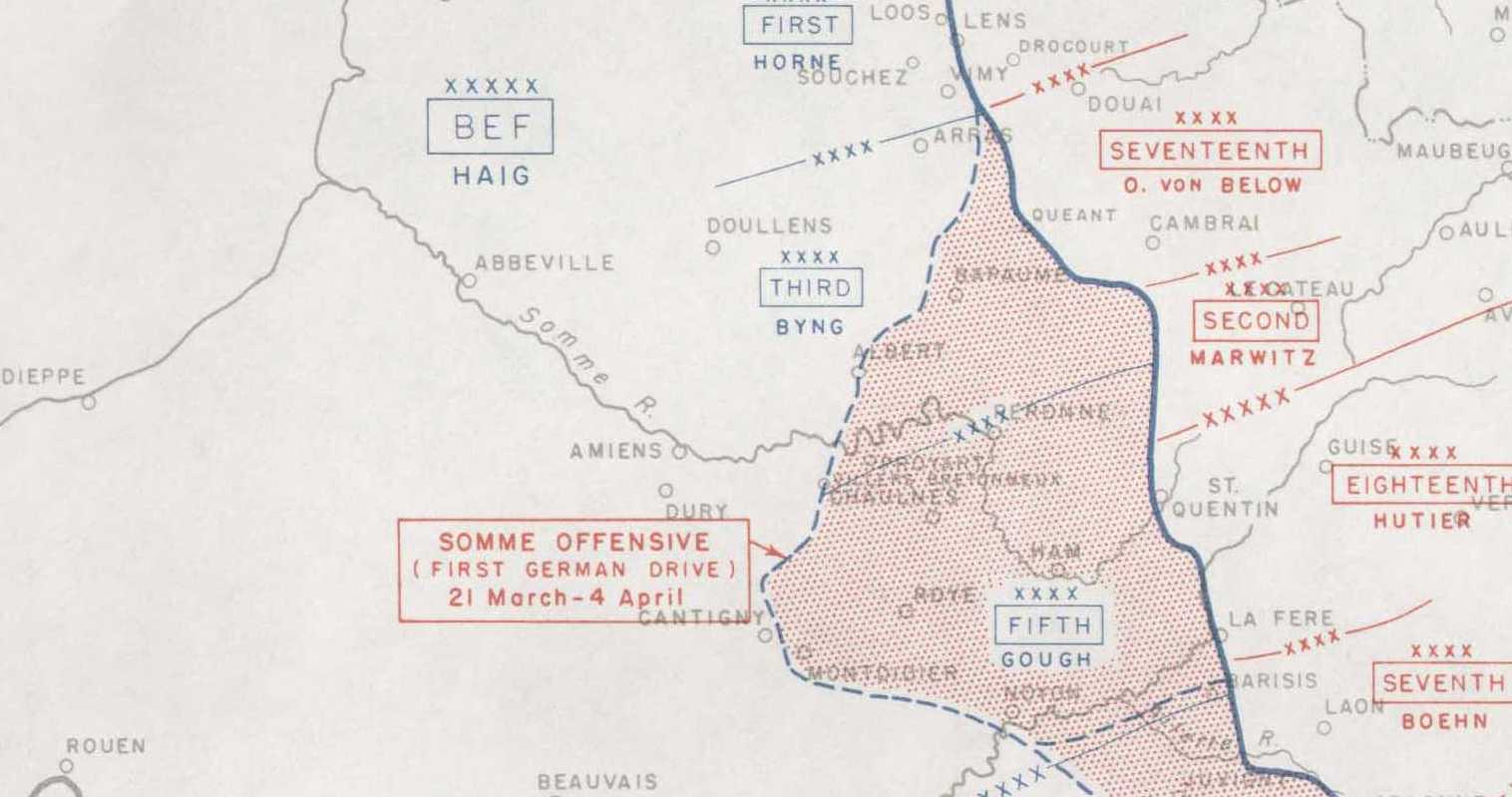
(Map from FirstWorldWar.com - Demuin is just on the red arrow)
From the third day our Twentieth was helped greatly by two Canadian batteries of the motor-machine-gun sort; on March 26 seven hundred American engineers joined Maxse to dig themselves in on a line covering Demuin; and as for the French troops, from dawn of the third day, gradually, and in great haste, they began to arrive, without guns, and with no more rifle ammunition than they carried. No brave men could have been more sorely handicapped. It was impossible for them to be adequate, effectual. Yet somehow, anyhow, they were put in authority over our own officers and troops ! This was done officially on the fifth day south of the Somme, before Foch was appointed to Supreme Command; but earlier it was active in a piecemeal fashion, and always with bad results.
Perhaps nothing in this battle is more distressing, or more controversial, than the act of putting British officers and men under French commanders before the French troops were fully deployed, on a complete war footing, with all necessary equipment, both military and administrative.
In this neck-or-nothing warfare, skeleton companies were obliged to counter-attack with the spirit of battalions and skeleton platoons with the spirit of well-manned companies.
Riddell's withdrawal drew closer and closer to the high
ground near White House and the two roads, Amiens-Roye, Demuin-Moreuil. This neighbourhood was reached on March 29, the day on which the enemy attacked from the Avre to Demuin. It was also on this day that the few unwounded troops of our Fiftieth were joined to remnants of the Twentieth.
For three days these genuine soldiers fought under Douglas Smith. Once they were driven back towards Amiens perhaps half a mile; but after the first enemy rush they stood like rocks. And not only did they break attack after attack — they regained some lost ground. How they did it was astounding, so small was their number and so complete was their fatigue. At last, on April 2, they were relieved by the remains of the Fourteenth, 3rd Corps, which had been brought from Hutier's southern battle for yet another ordeal. Then they limped their way to Longueau — and a prolonged sleep.
**********************
